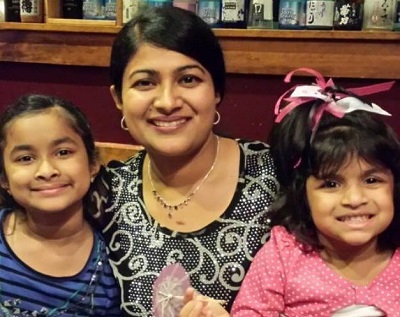Student Spotlight
Hope Ferdinando – 2020 Louisville Chapter ASQ Leadership Award
I am currently a Staff Advanced Quality Engineer with Stryker Corporation in their spine division which designs and manufactures various implants and surgical instrumentation for spinal surgeries. My primary function is to provide QA support on new product development projects and complaint investigations on existing products.
 So far, I have taken 6 EM courses which all have helped me tremendously at work especially when investigating product quality issues. The EM program at UofL goes beyond explaining the body of knowledge. The EM courses teach you about various tools & techniques and how to apply them in real world applications. At the end of each course, I feel that I am equipped with new powerful tools to help me perform better at work and grow in my career. I have used these tools to investigate supplier quality issues with surgical instruments that could result in a product recall. This requires me to gather information and analyze the data immediately.
So far, I have taken 6 EM courses which all have helped me tremendously at work especially when investigating product quality issues. The EM program at UofL goes beyond explaining the body of knowledge. The EM courses teach you about various tools & techniques and how to apply them in real world applications. At the end of each course, I feel that I am equipped with new powerful tools to help me perform better at work and grow in my career. I have used these tools to investigate supplier quality issues with surgical instruments that could result in a product recall. This requires me to gather information and analyze the data immediately.
The most invaluable tool was Minitab which I learned how to use from the engineering statistics and quality management courses. My teammates and upper management were so impressed with the data analysis from Minitab. I received so many compliments on the data visualization. They were amazed to see complex data being displayed in an easy to understand format. I have also used tools from the decision & risk analysis class which has helped me to reduce the scope of the investigation by assessing the risks to the impacted product lots. In many cases I have been able to avoid recalls and only perform field corrections or limit the recalls to specific lot/serial numbers.
The biggest win for me is that I can share what I have learned from the EM program and mentor the junior quality engineers on my team. We are now better at approaching investigations now that we are equipped with tools to drill down deep to the root causes which then helps us to come up with corrective action to address these quality issues.




